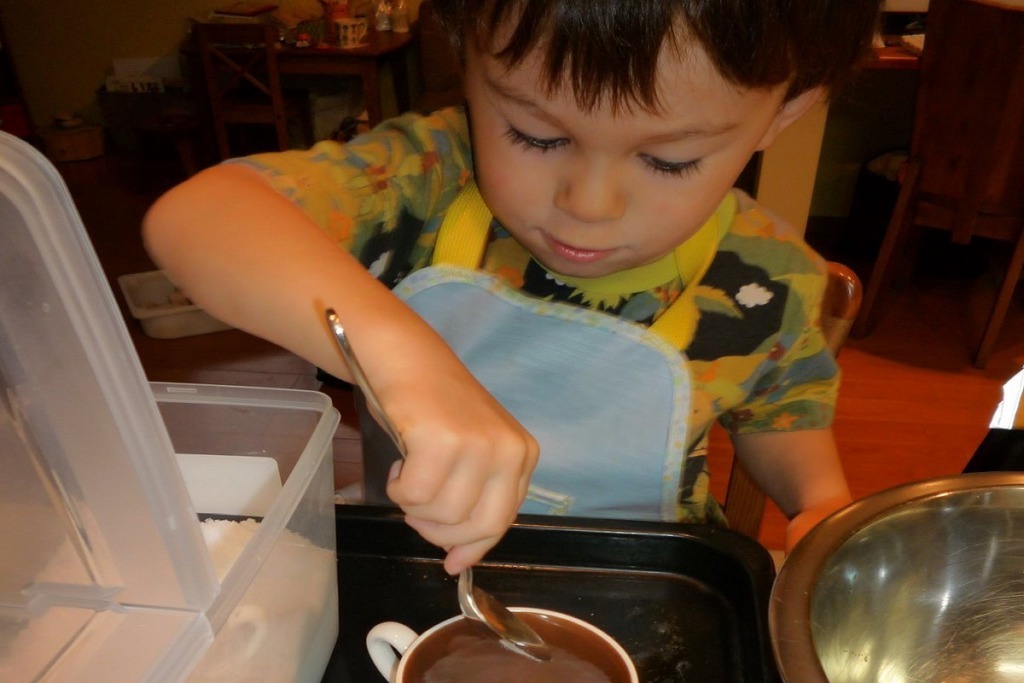
Written by Jo Ebisujima
I remember as a child standing on a chair at the kitchen counter, spooning flour into a coffee cup making cakes with my mum. Then a few years later it was my little brother doing the spooning and me doing the instructing or I am sure he would call it ‘bossing’, making the same recipe. Spilling flour on the flour and sampling dried fruit, fighting over who gets to lick the spoon and who gets the bowl to lick clean.
Now, it is my turn to be the mother and my son does the spooning and measuring and mixing - my job is being the oven hand. Different child, different kitchen, same recipe
I love to spend time with my son in the kitchen as long as we have the time to take it at his pace, not my usual throw it together style of cooking. Cooking at his pace makes a much more relaxed state of affairs. As he has grown we can take our time doing our own thing, I prepare the main dish and he can prepare the vegetable side dish, now he can do most of it independently, but still with a watchful eye cast over him. Sometimes we talk about the food, where it has come from and how it arrived in our kitchen. Sometimes we don’t have everything we need for a recipe so we scour the fridge and cupboards and decide on a replacement for the missing ingredient, will it work or will it be a disaster, would this be better than that and why do we need that missing ingredient anyway?
Other days we just laugh and joke about the silly things that have happened during the week as we work away chopping, stirring and mixing. I also find it is a good time to talk about problems or raise issues with things that I think we need to talk about, the pressure is off, no sit-down, in your face talking to. By busying our hands with our kitchen work, talking problems through becomes light work. Just like the problems of missing ingredients we can talk about solutions to the problem and decide which solutions would be the best.
So much is learnt for that time at the kitchen counter from weighing and measuring, reading recipes and learning about ingredients, temperature and the chemistry of cooking. Plus there is the whole sensory aspect, touching, feeling, smelling and of course tasting and last but not least there is the bonding and sharing. Sharing of recipes, stories, problems and jokes.
Making time to cook together at least once a week is an important time in our family not just for the food that ends up on the table but for the quality one on one time that we get in the process. Not to mention that it encourages children to talk about food, learn how to prepare it and to talk about healthy eating.



